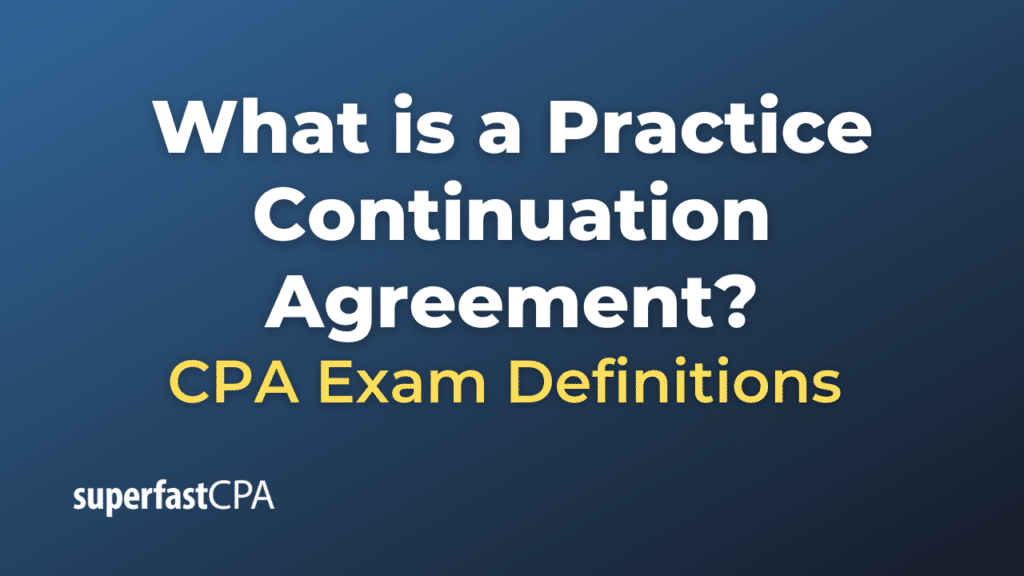Practice Continuation Agreement
A Practice Continuation Agreement (PCA) is a document commonly used in professions such as accounting, law, or medicine, which outlines a plan for the continuation of a professional practice in the event of an unexpected event, such as the retirement, disability, or death of the owner.
The agreement typically includes terms that detail who will continue the practice, how the transition will be managed, the valuation of the business, and how the outgoing owner or their estate will be compensated.
For example, a CPA might have a Practice Continuation Agreement with another firm or an individual practitioner that specifies they will take over the practice if the CPA retires, becomes disabled, or dies. The PCA would include details about how the practice will be valued (e.g., based on a multiple of annual revenue), how clients will be transitioned, and the terms of payment to the outgoing CPA or their estate.
Such agreements provide a safety net for professionals and their clients or patients, ensuring that the business can continue to operate smoothly even if the owner can no longer manage it.
Example of Practice Continuation Agreement
Let’s consider a hypothetical situation involving a private medical practice.
Dr. Smith owns a medical practice specializing in internal medicine. Over the years, he has built a significant patient base. Dr. Smith is the sole practitioner, and the continuity of his practice heavily depends on his ability to provide services. Aware of the risks and wanting to ensure the stability of his practice for his patients and staff, he decides to create a Practice Continuation Agreement.
Dr. Smith approaches Dr. Johnson, a friend and a respected peer who also has his own practice but has the capacity to take on additional patients if needed. They agree that if Dr. Smith were to retire, become disabled, or pass away, Dr. Johnson would take over Dr. Smith’s practice.
Their Practice Continuation Agreement might include details such as:
- Valuation: The practice might be valued based on a multiple of its average annual earnings over the past few years.
- Payment Terms: The agreement might state that Dr. Johnson will pay the purchase price to Dr. Smith (if he is retiring) or to his estate (in the event of his disability or death) over a certain period, say five years.
- Transition Plan: The agreement would outline a plan for notifying patients and transferring their care to Dr. Johnson, as well as any necessary actions to transfer employees, lease agreements, etc.
By creating this Practice Continuation Agreement, Dr. Smith ensures that his patients will continue to receive care, his employees will still have jobs, and his estate or he himself (in the case of retirement) will be compensated for the value of the practice he has built. Dr. Johnson, in turn, has the opportunity to expand his practice in a planned and manageable way.












